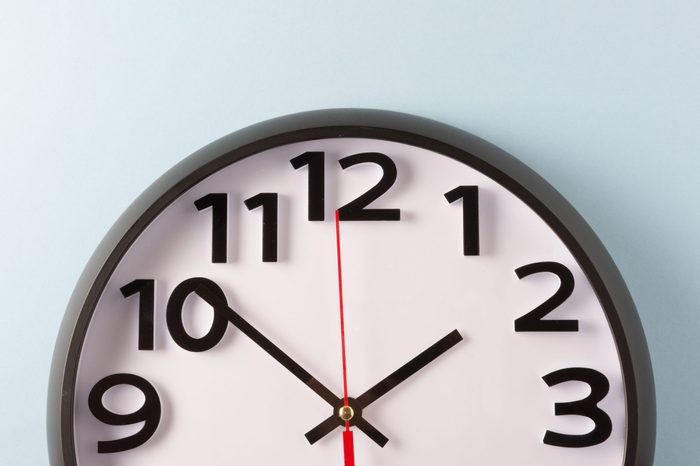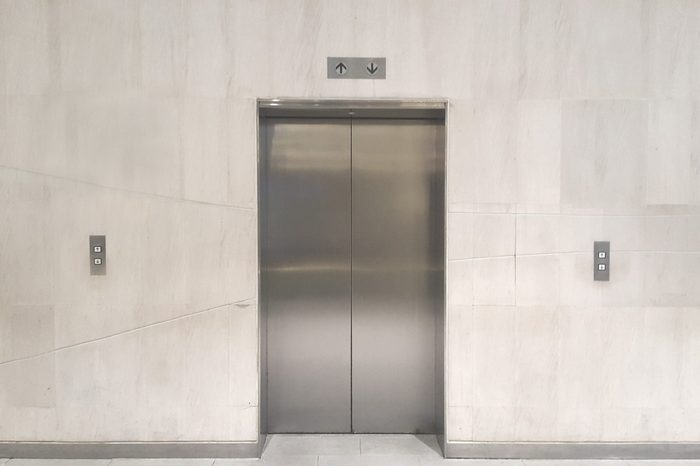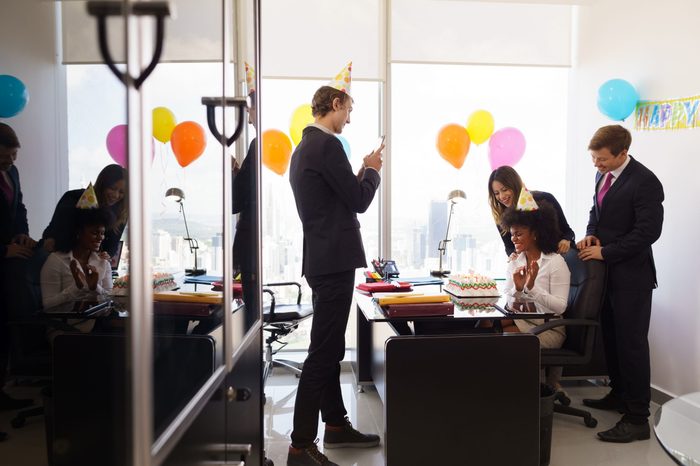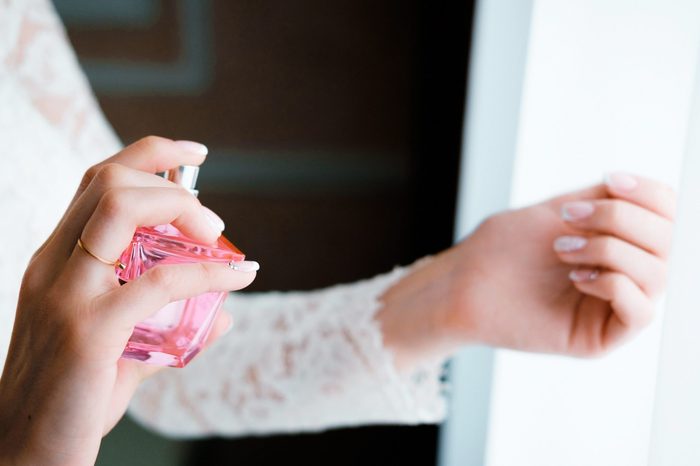
Some office rules go too far
One of the hardest office rules to decipher is what exactly a business casual dress code means. But office rules go well beyond the clothes employees wear. In some cases, companies try to regulate your diet, your speech, and plenty of other things, too. Click on to learn about some of the ridiculous and strange office rules that have actually existed.

Only eating together
In her previous company, Chanty CMO Olga Mykhoparkina dealt with one of the strangest office rules—co-workers could only eat lunch together. The employees had a one-hour lunch break, and the caveat was that they all had to eat in the office kitchen. “It was a forced bonding experience, and even though it was supposed to be nice, it was just extremely awkward,” Mykhoparkina says. “We stared at the ceiling and our plates in silence, mostly because my boss insisted on being there at all times, as well.” Over time, Mykhoparkina and other employees skipped lunch just to eat peacefully at home. Although, it is good business etiquette to accept the occasional lunch invite—even if you’re busy.

Required dancing
Peer pressure in the office is one of the sneaky sources of stress at work. For Raj Vardhman, co-founder of Goremotely.net, a previous job took the peer pressure to the next level—a rule. Vardhman previously worked at a call center selling newspapers in Canada. His supervisor would randomly tell everyone to pause their work for five minutes during the day. Then, he played the “Go Bananas” song and required all employees to dance. “Granted, it was supposed to be a distraction and some strange form of bonding ritual, but doing this every day was psychologically exhausting,” Vardhman says. “Perhaps this rule works well for extroverts, but for us introverts, it was a complete nightmare.”

Timed bathroom breaks
In Norway, call center employees were only allowed eight-minute bathroom breaks, the Telegraph reports. Flashing lights from an alarm system alert managers that employees are away from their desks for too long in the bathroom. Another Norwegian company had staffers sign a bathroom “visitor book,” while others monitored bathroom breaks through an electronic key card system. These companies should learn that productive people actually take breaks.

Group elevator rides
Sustainability is an important initiative for companies, but it’s possible to take things too far. For Ann Sharpsteen, an author and international speaker, one ridiculous office rule she followed while working at a production company required four or more people to take an elevator at a time. “What was worse, the elevator was glass that rose up through this large atrium,” Sharpsteen says. So it was easy to see if you broke the rule.

Late doughnuts
Fresh, free office doughnuts could definitely boost morale, but that’s not the experience of Glenn Marczewski, the Marketing and Communication Manager of Living As A Leader. “My former employer required us to buy the whole office doughnuts if we were more than half an hour late for work,” Marczewski says. “The irony of this is that it made us even later for work.”

No afternoon coffee
Imagine not having access to a cup of java during the afternoon slump? That was the reality for Saurabh Jindal, who runs the startup Talk Travel, in her previous role. At her old gig, coffee machines were off by 3:00 p.m. “The office manager believed that people will start leaving the office from 5:00 p.m. onwards; hence the office shouldn’t offer them coffee in such a little time before that,” Jindal says. Hospital office workers in the U.K. had a similar coffee rule—no caffeine in the reception area. Staffers couldn’t drink caffeine on the job because it looks like they’re not working hard enough, the Independent reports. But drinking coffee isn’t on the list of truly unprofessional work habits.

No garlic
Ridiculous office rules and food seems to be a theme. Another example is an old rule at Condé Nast from Si Newhouse, the former chairman. Newhouse, like Queen Elizabeth, was not a fan of garlic. He reportedly said that “no garlic will ever be served in the Condé Nast cafeteria,” according to the Cut. Garlic is just one of the foods that Queen Elizabeth will never eat.

No milk in cereal
Office workers for the engineering firm Sparrows in the U.K. can’t use company-bought milk for cereal. According to the Daily Record, a company memo says the complimentary milk is strictly for tea and coffee only. It seems that there wasn’t enough milk to go around for coffee and tea drinkers as well as cereal eaters. Employees should be more worried about avoiding the worst office mistakes rather than restricting their dairy intake.

No birthday celebrations
Plenty of bad bosses you’d never want to work for exist, but Mike Davis might take the cake as the grumpiest boss in the world. Davis worked for the Tiger Oil Company is infamous for his office memos. “There will be no more birthday celebrations, birthday cakes, levity or celebrations of any kind within the office,” the boss wrote on Feb. 8, 1978, the New York Times reports. “This is a business office.” I guess he didn’t know the rules of how to be a good boss.

No sitting
It’s hard to imagine an office that doesn’t allow people to sit down, yet that’s the rule for a company in Japan. A plastic manufacturing company only allows shared, standing computer work stations. Employees can’t have a computer at their own desk, where they can sit. The company reportedly says this tactic increases productivity. That’s exactly what an experimental chair-free office art installation in the Netherlands is studying, FastCompany reports. Plenty of other known strategies to increase productivity require less effort than standing all day.

No scents
An employee for the City of Detroit complained that a co-worker’s perfume made it hard for her to breathe. She won a lawsuit in 2001 because the city didn’t accommodate her allergy. Banning stinky perfume might not seem like a ridiculous office rule. Still, after the settlement, employees were warned not to wear any scented products, including cologne, aftershave, and even deodorant, CBS reports. Co-workers with bad B.O. are one of the most annoying types of co-workers.

No usage of “very,” “got,” or “hopefully”
Plenty of phrases don’t belong in emails, and Jacob Rees-Mogg, the leader of Britain’s House of Commons office, thinks some words should be avoided in conversation, too. A memo sent out to employees says to avoid using words such as “very,” “got,” and “hopefully.” Another rule in the memo is to address men with the title “esquire.”
